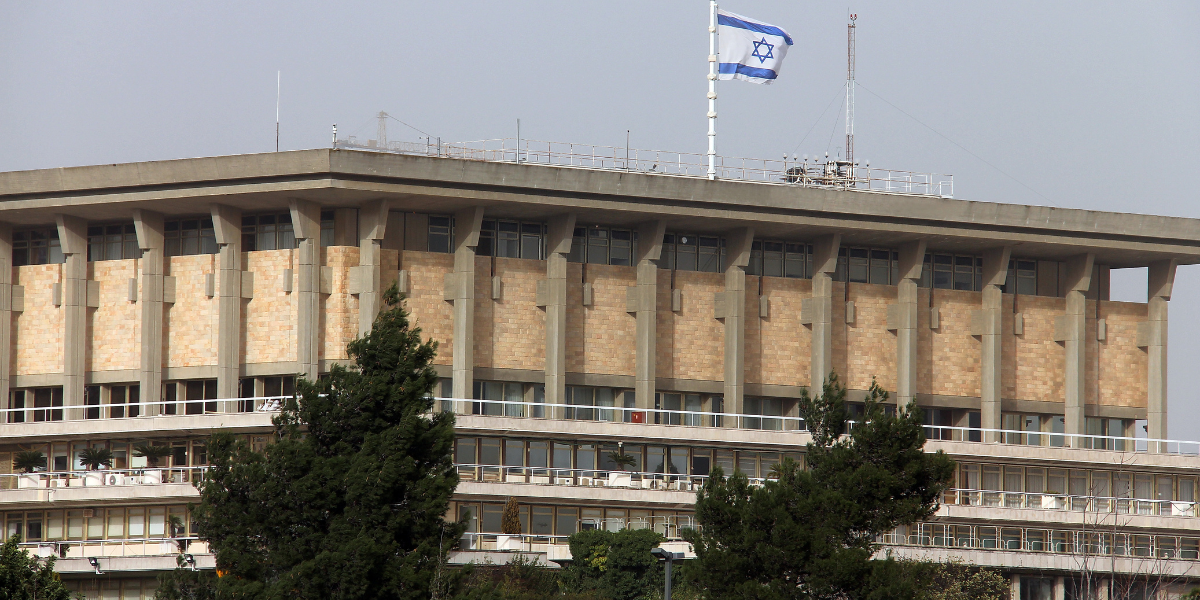On the backdrop of the HCJ hearing on the amendment regarding incapacitation to Basic Law: The Government (HCJ 2412/23) and the amendment regarding reasonableness to Basic Law: The Judiciary (HCJ 5658/23).
One line answer:
Either Israel has a constitution or Israel does not: if it does, (i.e. Basic Laws have constitutional status) then the constitution is supreme over all government institutions, including, as a matter of course, the Court. If it does not – then the Court has no authority to review even regular legislation.
Billboards declare: “Bagatz Has No Authority Over Basic Laws.” Until recently, this was taken for granted (and truth be told, interested very few). So what changed, and what is the controversy about?
Israel has no constitution. After the founding of the state, it was decided to enact basic laws for regulating the principle aspects of the governance system in Israel, intending to combine them into a constitution in the future.
Those who advocate for the Court’s intervention in Basic Laws rely on the legislative procedure for basic laws: the same as any other law, namely, any majority vote in the Knesset plenum. No special majority, special procedure or special institution is necessary. The amendment procedure is relatively simple as well, same as regular laws. The Knesset frequently amends basic laws, often according to coalition needs. If the Court can review regular laws, why not basic laws? Conversely, what stops the Knesset from calling every law “basic” and thus granting it immunity from judicial review?
These are weighty questions, and they require a short history lesson. Until approximately thirty years ago, it was unanimously accepted that the Court system in its entirety acts within the boundaries of Knesset law. The legislature represents the sovereign, and it is the legislature that determines the highest norms that bind all the branches of government. In the years of 1994 and 1995, after the enactment of Basic Law: Human Dignity and Liberty and Basic Law: Freedom of Occupation, the Court announced it viewed them as a ‘quasi-constitution’ and itself as authorized to ensure that Knesset laws did not contradict them henceforth. The Court explicitly referred to the fact that basic laws are legislated in the same fashion as regular laws. Justice Barak clarified that the very nomenclature of “basic law” makes them supreme norms, just as a constitution is.
As is well known, this legal theory was controversial, but in practice, the Court strikes down legislation it deems contradictory to basic laws, deriving its authority to do so by the power invested, according to the Court’s doctrine, by the basic laws themselves. That is, the basis for the Court’s authority to review the validity of Knesset laws and repeal them is the assumption that the basic laws are superior to regular legislation: the democratic legitimization for the judicial revolution, explained judges in the nineties, stems from the basic laws and the fact that the legislature can change them at will if it objects to the judiciary’s interpretation. Thus, the judicial reasoning at the time of the judicial revolution contradicts the claim made by the advocates of judicial intervention today.
Accepting the argument that basic laws are equal to regular laws – due to the fact that they are legislated the same way and are easy to amend- means we are back at the starting point: The Court has no authority to review legislation at all. There are countries in which this is so, primarily those modeled on the English parliamentary system, as is ours.
Therefore, both claims cannot co-exist. If the basic laws are what form the authority to review regular legislation, then it is impossible to claim authority to judicial review of basic laws (authorized by what? Supreme principles? Natural law? The judge’s morality?). Little wonder that such an arrangement does not exist in any lawful Western democracy. The reasons are as follows:
- Rule of law. In a democracy, the primary principle is that all government institutions function within the bounds of the law and derive their authority therein. “The Court, naturally, must act as well within the bounds of the basic laws” (Justice Aharon Barak). If one of the institutions is supreme over the entire legislative system, without a legal source that grants it that status, the result is rule of said institution, not rule of law.
- Separation of Powers. The foundation of separation of powers is the division of powers. If the branch of government authorized to interpret legislation and apply it (the judiciary) also holds supreme authority to determine legislation, then there is no separation of powers.
- Democracy. The people are sovereign over decisions of principle in the public sphere. The people must be the authority which establishes the supreme norm, from which all authorities derive their powers. That is the essence of democracy. The absolute supremacy of an unelected body is a violation of democracy and a loss of democratic legitimacy.
Indeed, it would be well to enact a Basic Law: Legislation that regulates a special process for the legislation of basic laws. However, until such is the case, it is impossible to both review regular laws on the basis of the basic laws and also review basic laws themselves.
By: Ariel Erlich
Further Reading:
- Examples of bills for Basic Law: Legislation, including for regulating a special legislative procedure for basic laws:
- Bill sponsored by Yariv Levin, 24th Knesset: https://main.knesset.gov.il/activity/legislation/laws/pages/lawbill.aspx?lawitemid=2161289&t=lawsuggestionssearch
- Bill sponsored by Karine Elharrar, 23rd Knesset: https://main.knesset.gov.il/activity/legislation/laws/pages/lawbill.aspx?lawitemid=2086281&t=lawsuggestionssearch
- Examples of the reasoning for and the basis of the Court’s authority to review legislation, and the relations between the Knesset and basic laws:
2.1 Barak, Aharon. Judicial Review of Constitutionality and the Status of the Knesset (Hebrew) HaPraklit 47(1) 5,6
2.2 Barak, Aharon. The Rule of Law and Supremacy of the Constitution (1997), from Aharon Barak : Selected Essays I 319.
2.3 Barak, Aharon. Israel as a Constitutional Democracy (2006), from Aharon Barak : Selected Essays III (17), 101.
Published originally in the KPF news-sheet, “One Line Answers” (B’Mishpat Echad)




